5 Engaging Ways to Celebrate Digital Citizenship Week
Digital Promise
OCTOBER 15, 2024
The post 5 Engaging Ways to Celebrate Digital Citizenship Week appeared first on Digital Promise.

Digital Promise
OCTOBER 15, 2024
The post 5 Engaging Ways to Celebrate Digital Citizenship Week appeared first on Digital Promise.

ED Surge
OCTOBER 15, 2024
Despite the historic funding that was funneled into the field in the wake of the pandemic, early care and education continues to be one of the most beleaguered occupations in the United States. Early childhood educators earn, on average, $13.07 per hour, a wage that puts them in the bottom 3 percent of workers nationally. (Elementary and middle school teachers, by comparison, earn an average of $31.80 per hour, and U.S. workers, across occupations, earn about $23 an hour.
This site is protected by reCAPTCHA and the Google Privacy Policy and Terms of Service apply.
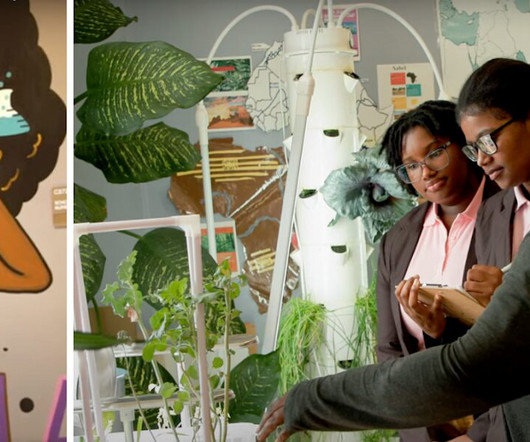
Digital Promise
OCTOBER 15, 2024
The post Empowering Change at Coretta Scott King Young Women’s Leadership Academy appeared first on Digital Promise.
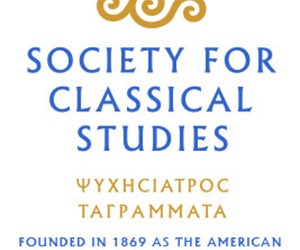
Society for Classical Studies
OCTOBER 15, 2024
Introducing the First Annual SCS Census kskordal Tue, 10/15/2024 - 11:56 Image This 10-minute survey, developed by the SCS Data Committee, aims to provide a picture of the field of Classical Studies in 2024—because we can’t know where we are going until we know where we are. Like the US Census, the SCS Census has the mission to provide timely, accurate, and actionable information about the field to its members, including decision-makers at all levels.

The Hechinger Report
OCTOBER 15, 2024
When my 8-year-old started asking questions about the world, it hit me that there wasn’t a lot out there to guide parents in teaching their kids about being active, engaged citizens. Manifestations of this gap are even more glaring in my college classroom, where many of my students do not know how to vote, haven’t read the Constitution and are unaware of the state and local political offices responsible for many of our quality-of-life decisions.

ED Surge
OCTOBER 15, 2024
When Gina Petersen graduated with her associate degree from Kirkwood Community College two years ago, she described it as “the biggest accomplishment I have ever done.” As a returning adult college student, she had struggled to fit her studies in part time, online, while working as a trainer for a tech company. She had gotten that job through connections, and she hoped that a college degree would be a big help if she ever needed to find a new job in the future.
Social Studies Network brings together the best content for social studies educators from the widest variety of thought leaders.

Anthropology.net
OCTOBER 15, 2024
Mountainous regions have long attracted early human populations, but the reasons behind this preference are becoming clearer thanks to new research. A recent study published in Science Advances 1 by scientists from the IBS Center for Climate Physics (ICCP) at Pusan National University reveals that the diverse ecosystems within these terrains played a crucial role in human evolution.

The Effortful Educator
OCTOBER 15, 2024
For the past six or seven years I have started my class (almost) every day the same way…with retrieval practice. This is usually a quick review of information covered from the last class meeting or of information we’ve covered in past lessons that directly relate to what we will discussing today. Four or five multiple-choice questions, a short-answer question or two, labeling a diagram…the type of questions posed change from time to time, but the idea that students need to retr

TCI
OCTOBER 15, 2024
In today’s classrooms, using technology isn’t just a nice extra—it’s a must-have. With schools facing the challenges of remote learning, different learning styles, and changing dynamics, video activities have become an important tool for teachers. While watching videos can be passive, activities that effectively use video teaching strategies engage students in active learning.
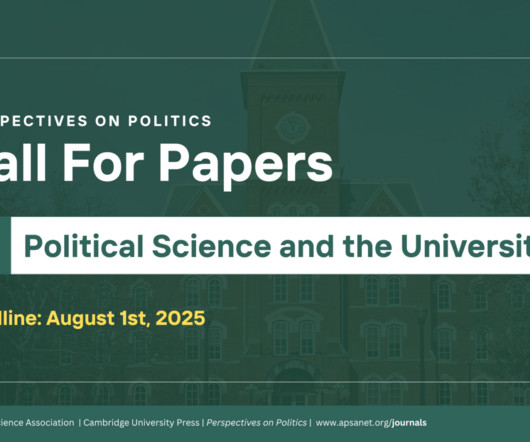
Political Science Now
OCTOBER 15, 2024
Guest Editor: Anja Neundorf, University of Glasgow Guest Editor: Robert Pape, University of Chicago Guest Editor: Nicholas Tampio, Fordham University In recent years, universities around the world have been at the center of political controversies. In this call for papers of Perspectives on Politics , we invite political scientists to use their expertise to explain what is and ought to be happening at institutions of higher education.

TCI
OCTOBER 15, 2024
In today’s classrooms, using technology isn’t just a nice extra—it’s a must-have. With schools facing the challenges of remote learning, different learning styles, and changing dynamics, video teaching strategies have become an important tool for teachers. While watching videos can be passive, video teaching strategies engage students in active learning.
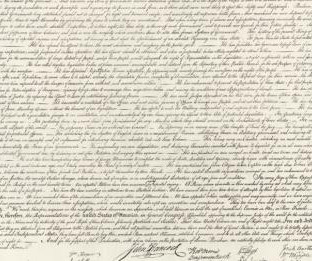
Civics for All of US
OCTOBER 15, 2024
Happy 250th Birthday, America! Natalie Rocchio Tue, 10/15/2024 - 12:18 Body This Civics for All of US distance learning program is available for groups of 10 or more students free of charge. Each program will be led by one of our educators located at National Archives sites, the Center for Legislative Archives, and Presidential Libraries across the country.

TCI
OCTOBER 15, 2024
In today’s classrooms, using technology isn’t just a nice extra—it’s a must-have. With schools facing the challenges of remote learning, different learning styles, and changing dynamics, video teaching strategies have become an important tool for teachers. While watching videos can be passive, video teaching strategies engage students in active learning.
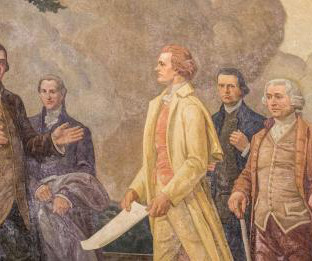
Civics for All of US
OCTOBER 15, 2024
Life, Liberty and the Pursuit of Happiness Natalie Rocchio Tue, 10/15/2024 - 12:39 Body This Civics for All of US distance learning program is available for groups of 10 or more students free of charge. Each program will be led by one of our educators located at National Archives sites, the Center for Legislative Archives, and Presidential Libraries across the country.

Studies Weekly
OCTOBER 15, 2024
Lesson 8: Know Your Candidates (Grades K-3) Updated Oct. 9, 2024 • Studies Weekly Objective for the Lesson This lesson will provide some general guidelines and information to help students understand how citizens register to vote. Weekly Summary We understand that in order to vote, you have to be a citizen and at least 18 years old. What happens next?
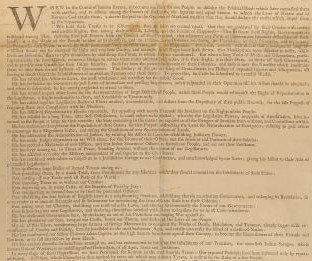
Civics for All of US
OCTOBER 15, 2024
Certain Unalienable Rights Natalie Rocchio Tue, 10/15/2024 - 12:44 Body This Civics for All of US distance learning program is available for groups of 10 or more students free of charge. Each program will be led by one of our educators located at National Archives sites, the Center for Legislative Archives, and Presidential Libraries across the country.
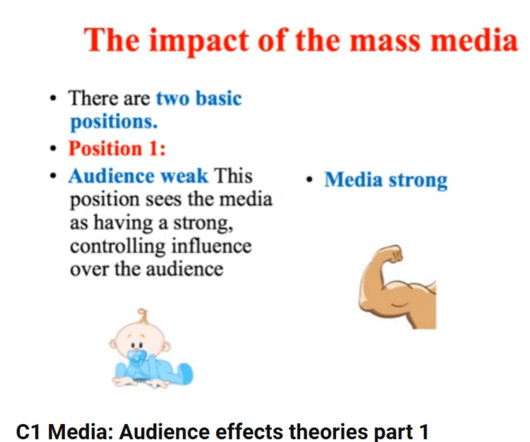
ShortCutsTV
OCTOBER 15, 2024
Steve Bassett’s Channel consists of around 250 reasonably short (10 – 15 minutes mostly) “video lectures”, the last was made around 6 years ago.

Civics for All of US
OCTOBER 15, 2024
We Hold These Truths Natalie Rocchio Tue, 10/15/2024 - 12:47 Body This Civics for All of US distance learning program is available for groups of 10 or more students free of charge. Each program will be led by one of our educators located at National Archives sites, the Center for Legislative Archives, and Presidential Libraries across the country. After submitting your program request, you will be connected to an available National Archives educator to confirm your reservation.

Teaching American History
OCTOBER 15, 2024
In the next few days, those who have completed all coursework for the Master of Arts in American History and Government (MAHG) program may begin writing their qualifying exams, so as to graduate with their degrees this December. The next iteration of the exam, which is offered three times a year, will be released on Friday, October 18. For most teachers, the end of MAHG coursework brings a mixture of pride, relief, and wistfulness.

Political Science Now
OCTOBER 15, 2024
Nominations are now open! Deadline: December 18, 2024 at 11:59 PM ET. The Lowi Award honors the author of a first book in any field of political science that exemplifies qualities of broad ambition, high originality, and intellectual daring, showing promise of having a substantive impact on the overall discipline, regardless of method, specific focus of inquiry or approach to subject.
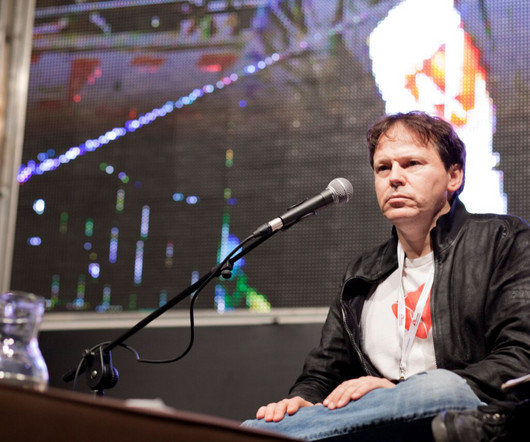
Sapiens
OCTOBER 15, 2024
Anthropologist David Graeber’s celebrated theory of “b t jobs” continues to provide a critical window into why modern work is often so useless, soul-sucking, and absurd. This article was originally published at The Conversation and has been republished under Creative Commons. ✽ The late David Graeber was an American professor of anthropology at the London School of Economics.

Political Science Now
OCTOBER 15, 2024
In the APSA Public Scholarship Program, graduate students in political science produce summaries of new research in the American Political Science Review. This piece, written by Sienna Nordquist , covers the new article by Daniel Meierrieks and Daniel Auer, “Bribes and Bombs: The Effect of Corruption on Terrorism.” The World Economic Forum estimates that developing countries lose $1.26 trillion a year, and that the EU alone suffers economic losses of $132 billion per year from corrup
Let's personalize your content